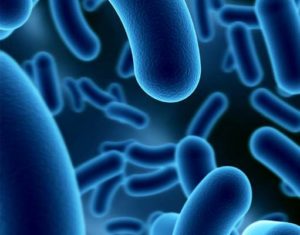
The Atomic Force Microscopy and Food Workshop will be held from 9th – 10th November, 2017, in Auckland, New Zealand.
Immediately following DOF17 there will be a 1.5-day workshop at the University of Auckland on the use of Atomic Force Microscopy in food and nutrition research. The workshop aims to attract 20-30 participants across a broad range of research areas.
The main focus is to provide participants with practical experience of analysing food materials using the latest AFM techniques and equipment. In addition, participants will learn about recent progress in the field from leading international AFM experts working in the areas of foods, biomaterials, and soft matter systems.
The workshop will cater for beginners and AFM experts alike. We also anticipate involvement of advanced users seeking exposure to new analytical approaches.
Confirmed Keynote Speakers:
Unique aspects of force included within microscopy
 Patrick Gunning, Quadram Institute Bioscience (f. Institute of Food Research), Norwich, United Kingdom
Patrick Gunning, Quadram Institute Bioscience (f. Institute of Food Research), Norwich, United Kingdom
The combination of high-res visualisation of ultrastructure with force measurement is the major impact of AFM. The potential of force spectroscopy to probe the specifics of receptor-ligand interactions at the single molecule level is promising. For example, factors such as bond lifetimes, distances, and the number and nature of the energy barriers involved in single receptor-ligand interactions, are all within the realm of AFM measurement. My presentation will include explanations of the fundamental aspects of AFM’s force spectroscopy and demonstrate the ability that this combination has successfully enabled exploration of structure-function relations in food science. It features several aspects; food material science, digestion, satiety, bioactivity and my most recent investigation of the role of the gut microbiome.
Analyzing Polymers, Filaments, Biomacromolecules and Fibrous Objects via the open-source code FiberApp
 Raffaele Mezzenga, ETH Zurich, Department of Health Science & Technology, Schmelzbergstrasse 9, LFO E23, 8092 Zurich
Raffaele Mezzenga, ETH Zurich, Department of Health Science & Technology, Schmelzbergstrasse 9, LFO E23, 8092 Zurich
Biological semiflexible polymers and filaments such as collagen, fibronectin, actin, microtubules, coiled-coil proteins, DNA, siRNA, amyloid fibrils, etc. are ubiquitous in nature. In biology, these systems have a direct relation to critical processes ranging from the movement of actin or assembly of viruses at cellular interfaces, to the growth of amyloid plaques in neurodegenerative diseases. In technology and applied sciences, synthetic macromolecules or fibrous objects such as carbon nanotubes are involved in countless applications. Accessing their intrinsic properties at the single molecule level, such as their molecular conformations or intrinsic stiffness, is central to the understanding of these systems, their properties, and the design of related applications. In this talk I will discuss the features and potential of FiberApp in analyzing polymers, fibrils and filamentous objects. FiberApp is a new open-source tracking and analysis software based on a cascade of algorithms describing structural and topological features of objects characterized by a very high length-to-width aspect ratio, generally described as “fiber-like objects”.
Imaging challenges in bionanotechnology
 Jenny Malmstrom, Department of Chemical and Materials Engineering, University of Auckland, New Zealand
Jenny Malmstrom, Department of Chemical and Materials Engineering, University of Auckland, New Zealand
In our research group we are interested in the interface between materials and biological systems – such as proteins and cells. Structured or organised surfaces with nanoscale features are important in a range of fields ranging from energy and computing to controlling cellular adhesion. The precise organisation of proteins at surfaces is one route to creating such engineered interfaces. Proteins exist with an enormous structural and chemical versatility and lend themselves well to be functionalized with different moieties. The ability to rationally engineer proteins enables the use of proteins as carefully designed nanometer sized building blocks.
I will present work from our group focussed on using protein-protein interactions to build up higher order structures, and in particular to order these structures. Proteins like Lsmα and peroxiredoxin self-assemble into robust doughnuts whose pore size can be tuned specifically to encapsulate metal complexes or nanoparticleand then assemble further into tunnels to create magnetic, electrical or optical nanorods. This work describes how we are harnessing this potential to create functional arrays of these self-assembling protein rings. We have explored ways of arranging these protein rings, for example through templating using a self-assembling block copolymer, or through specific binding to a patterned surface. Furthermore, the protein core has been used to template the synthesis of small (~3 nm) magnetic nanoparticles. Throughout all of this work, imaging is an important characterisation tool and I will show how we use AFM (including magnetic force microscopy) and other techniques to understand our systems.
Nanoindentation of hierarchical biological materials: from polysacchride gels to living cells
 Gleb Yakubov, ARC Centre of Excellence in Plant Cell Walls, School of Chemical Engineering, The University of Queensland, Australia
Gleb Yakubov, ARC Centre of Excellence in Plant Cell Walls, School of Chemical Engineering, The University of Queensland, Australia
Atomic Force Microscopy is widely used to characterise the micromechanics of complex biological systems including cells. The attraction of using AFM for nanoindentation is its ability to measure very low forces and its operational versatility, as well as the potential to include in situ imaging. However, interpretation of force indentation curves may present a significant challenge especially for biological materials and systems that are heterogeneous and comprise a number of morphological features, each having a unique set of micromechanical properties.
Here, I present a novel Multi Regime Analysis (MRA) algorithm that tackles these challenges enabling deconvolution of highly complex force indentation profiles. The MRA approach combines both well established and semi-empirical theories of contact mechanics within a single framework. The fundamental finding is that each structural contribution to the mechanical response can be incorporated in series with other ‘mechanical resistors’ using a vector field of deformations mapped onto the experimental values of force. This simplification enables interpretation of the micromechanical properties of materials with hierarchical structures as well as automated processing of large data sets, which is particularly indispensable for biological systems.
Further, I will illustrate the applicability of MRA for characterising the micromechanics of a broad range of soft materials including plant cell and polysaccharide microgels. In particular, I will show the unique capability of MRA to map micromechanical properties and to evaluate elastic moduli of anisotropic materials with complex hierarchical structures.
AFM with soft colloidal probes – understanding droplet and bubble interactions
 Rico Tabor, School of Chemistry, Monash Univeristy, Melbourne, Asutralia
Rico Tabor, School of Chemistry, Monash Univeristy, Melbourne, Asutralia
Understanding the interactions between droplets of oil and gas bubbles is central to tuning the desired properties of foodstuffs such as ice cream and mousse, cosmetics and pharmaceuticals, and in mineral flotation and separation. Fundamentally, the interaction between dissimilar fluid interfaces is an interesting problem, as they may charge and deform to different extents, and can potentially experience a range of exotic forces due to the composition of the intervening fluid.
We have developed new methods to use the atomic force microscope (AFM) to analyse collisions between pairs of bubbles and oil droplets – of around 100 microns diameter – in various conditions.1,2 From surfactant-free interfaces where the native charge of the air–water and oil–water interface can be examined, to complex fluids where the granularity of the background fluid creates hysteresis and structural forces, almost all combinations of soft colloid can be interrogated.
Crucially, by combining the data obtained from AFM with other techniques such as confocal microscopy and small-angle neutron scattering,3 a complete picture of the role of solution structure and droplet interacts can be obtained. Now we seek to delve further into the realms of macroscopic and microscopic rheology to better understand the relationships between the rarefied single interaction forces measured using AFM and the bulk properties of the complex and multicomponent fluids that are central to food processing.
Us and Them: Inhomogeneities in Polysaccharides and their Gels Studied by AFM
 Bill Williams, Bill Williams Institute of Fundamental Sciences, Massey University, New Zealand
Bill Williams, Bill Williams Institute of Fundamental Sciences, Massey University, New Zealand
The emergence of patterning in biological systems is of fundamental interest. Here we first describe how the molecular patterning of a polysaccharide substrate influences its single molecule stretching behaviour and describe work designed to facilitate such AFM experiments by the end-tethering of species of interest. Secondly .we briefly review AFM work on the moduli mapping of plant tissues and describe our parallel studies on biomimetic gels that reveal large length-scale inhomogeneities in mechanical properties.
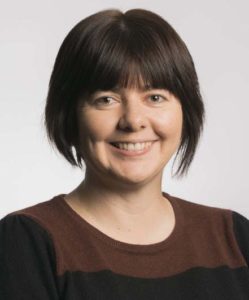
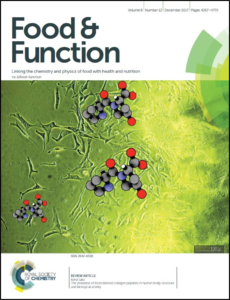











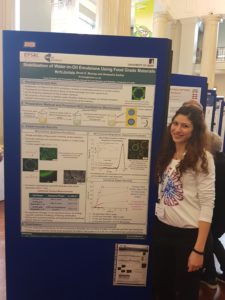
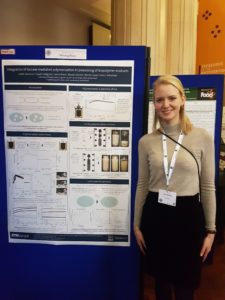
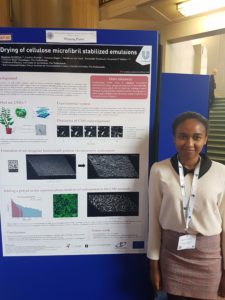
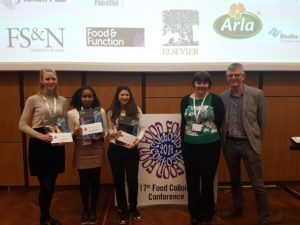
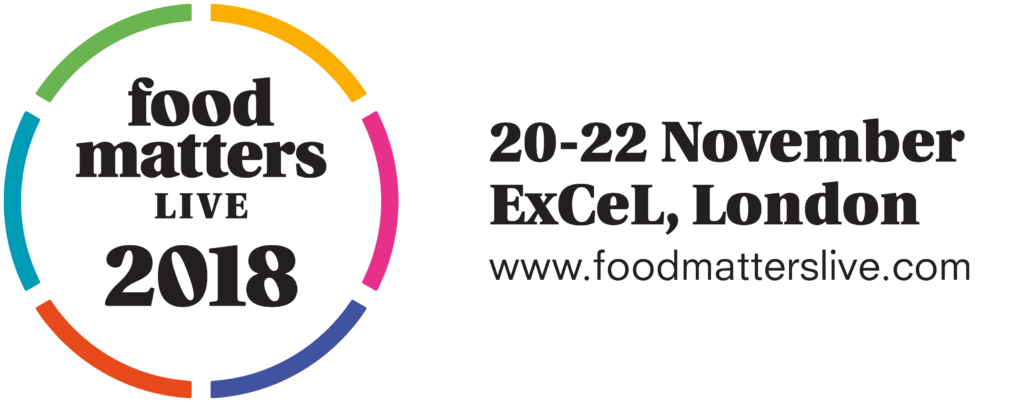


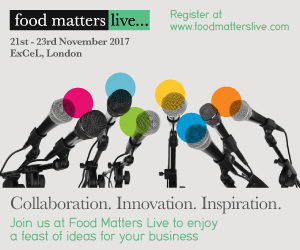


 Patrick Gunning, Quadram Institute Bioscience (f. Institute of Food Research), Norwich, United Kingdom
Patrick Gunning, Quadram Institute Bioscience (f. Institute of Food Research), Norwich, United Kingdom Raffaele Mezzenga, ETH Zurich, Department of Health Science & Technology, Schmelzbergstrasse 9, LFO E23, 8092 Zurich
Raffaele Mezzenga, ETH Zurich, Department of Health Science & Technology, Schmelzbergstrasse 9, LFO E23, 8092 Zurich Jenny Malmstrom, Department of Chemical and Materials Engineering, University of Auckland, New Zealand
Jenny Malmstrom, Department of Chemical and Materials Engineering, University of Auckland, New Zealand Gleb Yakubov, ARC Centre of Excellence in Plant Cell Walls, School of Chemical Engineering, The University of Queensland, Australia
Gleb Yakubov, ARC Centre of Excellence in Plant Cell Walls, School of Chemical Engineering, The University of Queensland, Australia Rico Tabor, School of Chemistry, Monash Univeristy, Melbourne, Asutralia
Rico Tabor, School of Chemistry, Monash Univeristy, Melbourne, Asutralia Bill Williams, Bill Williams Institute of Fundamental Sciences, Massey University, New Zealand
Bill Williams, Bill Williams Institute of Fundamental Sciences, Massey University, New Zealand














